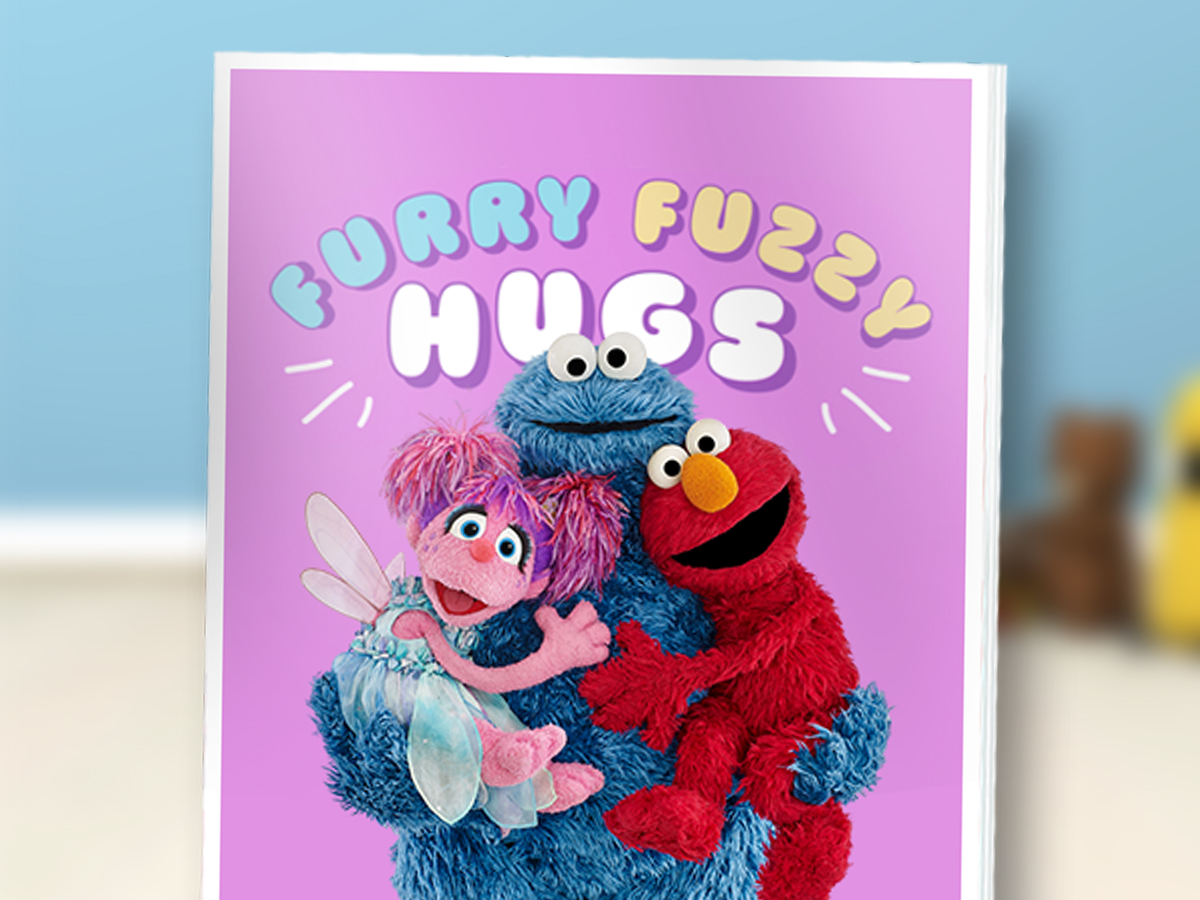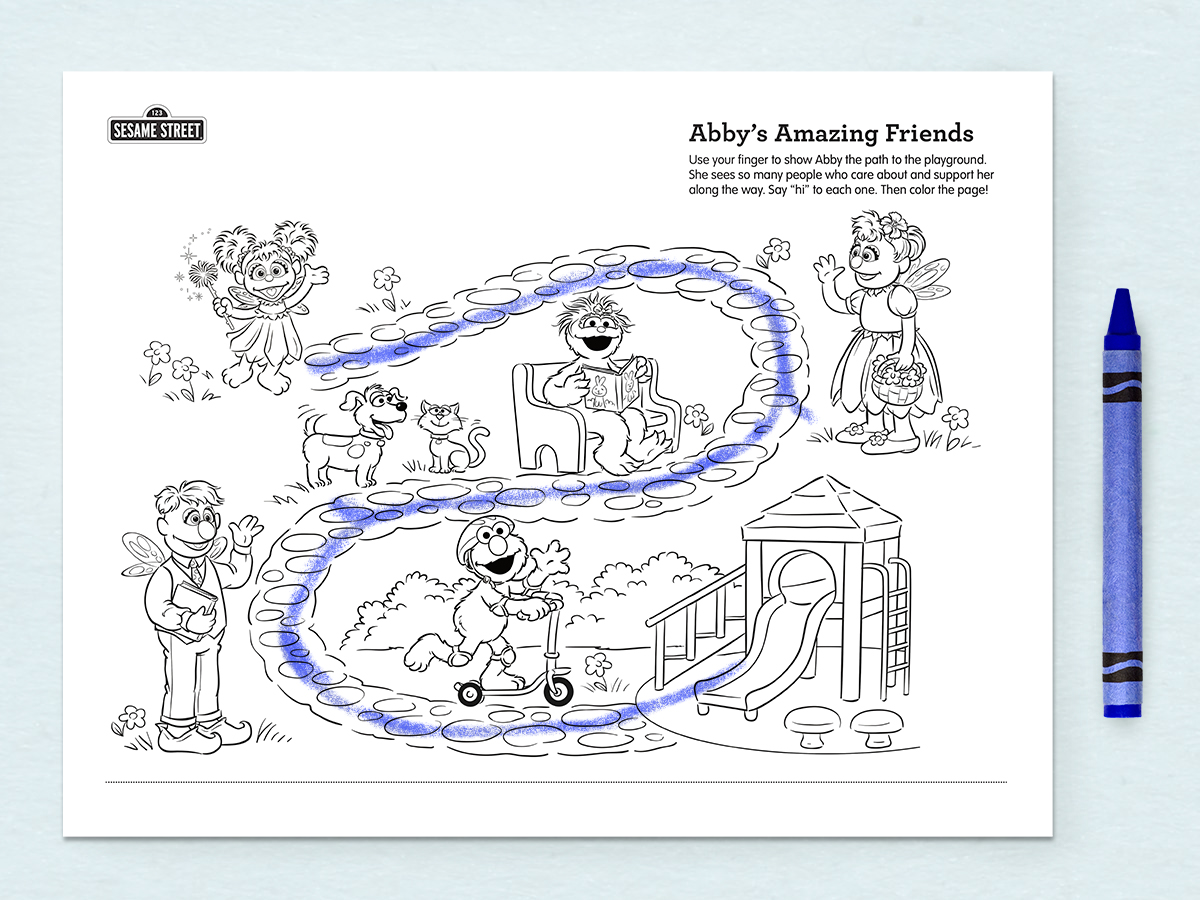
Sesame Strong, Session 3: The People Who Care for Me
Invite caregivers to care for themselves!
Welcome to Session 3. This week is all about helping caregivers remember to care for themselves, too!
You’ll learn strategies to share with parents and explore resources they can use to practice. This mini-session will help you remind caregivers to reach out for help and practice self-care.
Download this week’s overview and the caregiver take-home packet.
Remember: As with all Sesame Strong bundles, you can share the messages, strategies, and resources with caregivers in many ways (not just in a workshop setting). Keep it simple, and do what works for you!
1. Gather & Share
Gather & Share
- Consider beginning your parent mini-workshop with a mindfulness moment.
- Check in. How did the Sesame Strong activities go last session? What was your favorite resource? Any challenges? Questions?
- Introduce this session’s Big Idea (the “why”): Caring adults need care too. Take time to care for yourself.
- Then share this session’s Strategy Spotlight (the “how”): Notice your circle of care.
Explain that caring for others takes a lot of energy and effort, so it’s important to refuel with some self-care on a regular basis. Sesame Street in Communities has a variety of resources to help parents and caregivers calm down and reset. They can even invite kids to recharge along with them.
This week’s caregiver resources support our theme by providing opportunities to explore, read, and play together. The next sections outline how you might review these resources with parents and ways they can use them at home with their children.
2. Me Time
Me Time
Remind caregivers how important they are! They help children all the time, in so many ways. And they’re best at it when they feel at their best. Say, “You’ll be better able to help kids cope with difficult emotions if you’re also taking good care of yourself.”
Distribute the Taking Care of Yourself article and ask parents to underline tips or points they’d like to remember.
To help parents spark self-care ideas, you might…
- Ask parents to make a list of hobbies they enjoy. How can they fit these into their week?
- Ask parents to list people they’re grateful for and to whom they know they can reach out when they need help.
- As a group, brainstorm self-care strategies, using the categories of mind, body, and spirit as places to start.
3. Explore Together
Explore Together
We all get comfort from familiar people and special things.
Listen to the song together as a group. Ask parents to watch the video at home with their children too. Parents and kids can talk about the people who are there to help: family, friends, teachers, doctors, etc. Encourage parents to remind their kids (and themselves) that they are never alone. There’s always someone to help.
We hold hands to stick together, stay safe, show love, and help each other. Encourage parents to watch the Hooray for Hands video with children and talk about all the ways we can use our hands to show kindness. We clap or high-five to celebrate one another and we pat someone on the back when they’re feeling down. What other ways can kids think of?
4. Read Together
Read Together
Hugs and physical comfort help children feel safe and loved. This nurturing touch even helps brain development! So encourage parents to cuddle up and click through the Furry, Fuzzy Hugs digital storybook together.
Suggest some conversation starters to parents. They might ask their children, “Do you like hugs? How do they make you feel inside? What’s your favorite kind of hug? Let’s make up our own!”
5. Play Together
Play Together
Children thrive when they know they’re surrounded by people who support and care for them. Share this coloring page with parents and encourage them to sit and color together with their children as they talk about the caring people in Abby’s life and in their own!
6. Friendly Reminders & Notes for Next Time
Friendly Reminders & Notes for Next Time
Remind caregivers
- Questions are always welcome. Share with parents the best way to contact you with questions.
- Review the date and time for next session’s mini-workshop.
- Thank parents for their partnership and participation.
Reflect
- What went well?
- What could I do differently for the next session?
- Who might I ask for help?


